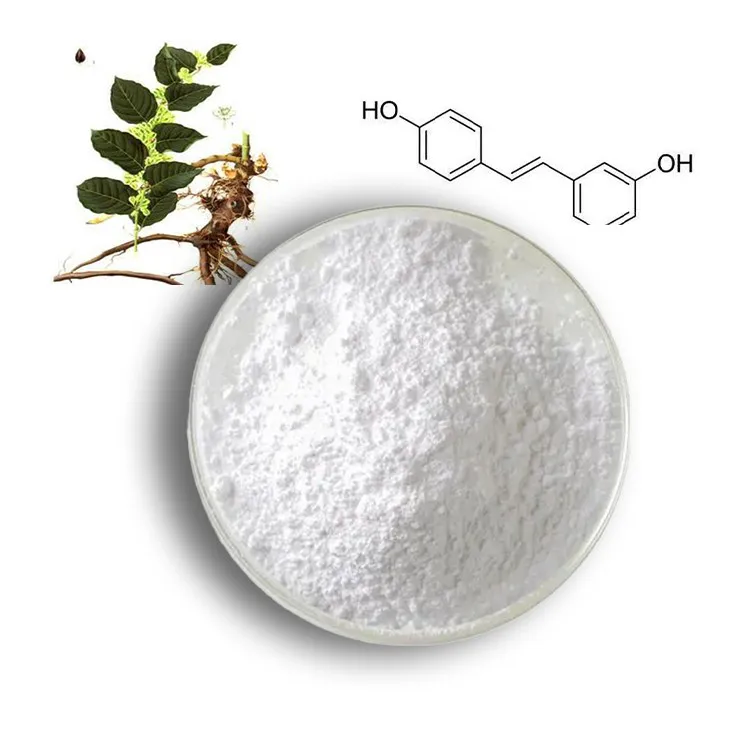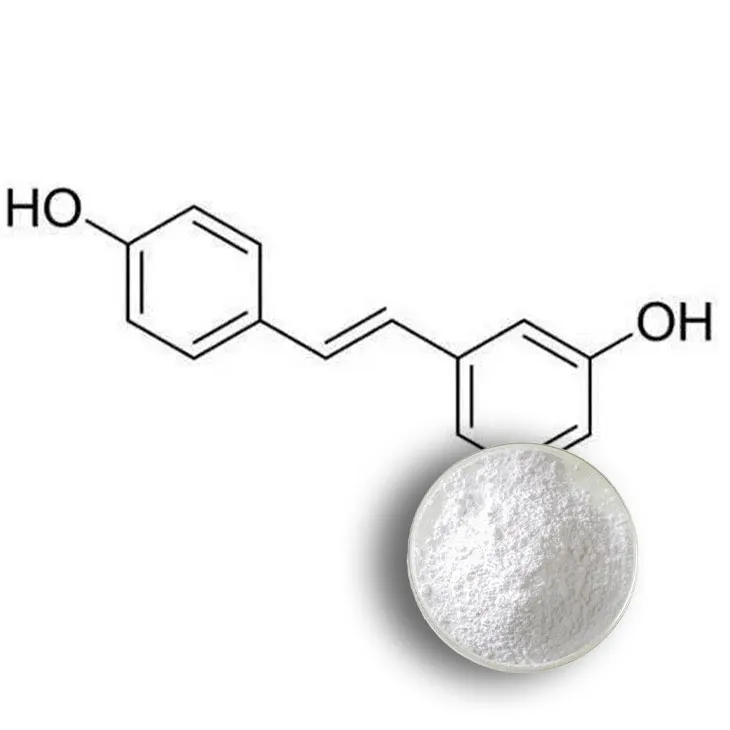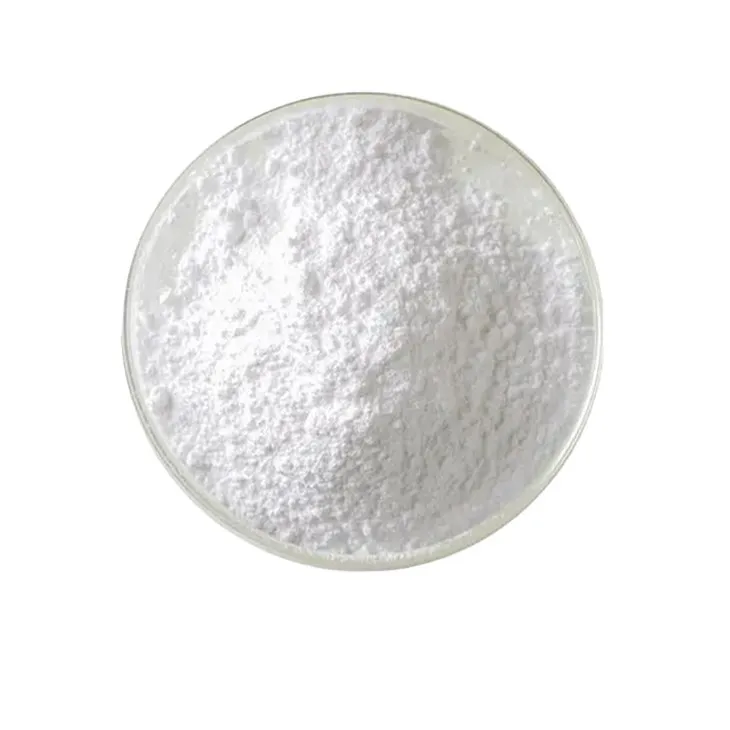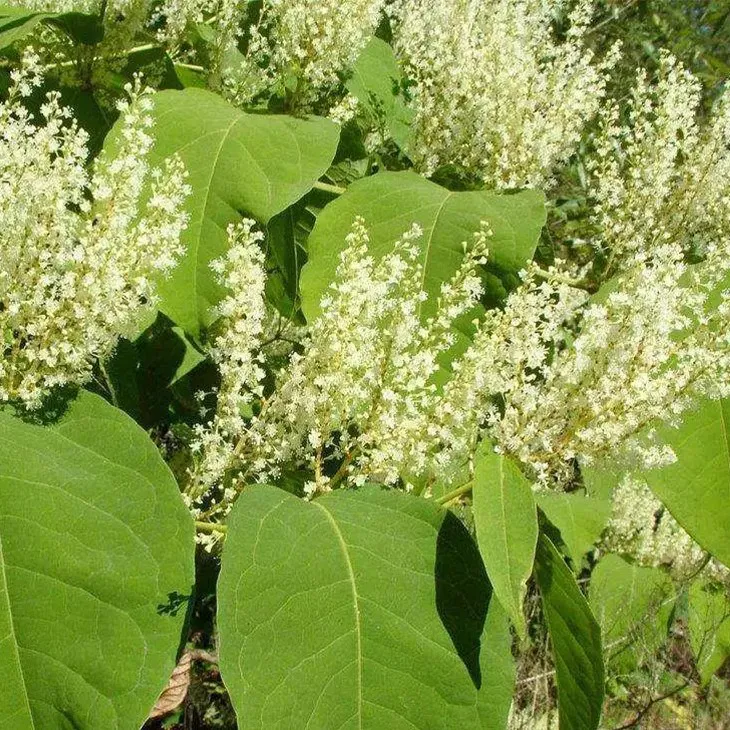- 0086-571-85302990
- sales@greenskybio.com
Understanding the Private Label of Resveratrol Extract: A Comprehensive Guide
2024-12-14

1. Introduction
Resveratrol, a natural phenol, has been a subject of great interest in recent years. White Resveratrol extract, in particular, has emerged as a significant compound with potential applications in multiple areas. This guide will provide a detailed exploration of this extract, starting from its origin and moving on to its extraction methods, health benefits, and industrial applications.

2. Origin of Resveratrol
2.1 Natural Sources
Resveratrol is found in several natural sources. One of the most well - known sources is grapes. It is particularly concentrated in the skins of grapes, which is why red wine, which is made from grapes with skins, contains resveratrol. Resveratrol acts as a natural defense mechanism in plants against various stresses such as fungal infections and UV radiation.In addition to grapes, resveratrol can also be found in other fruits like blueberries, cranberries, and mulberries. Some plants also produce resveratrol, for example, Japanese knotweed. This plant has been a significant source for the extraction of resveratrol due to its relatively high content of the compound.

3. Extraction Methods of White Resveratrol extract
3.1 Solvent Extraction
One of the common methods for extracting resveratrol is solvent extraction. In this method, a suitable solvent is used to dissolve resveratrol from the plant material. Ethanol is often a preferred solvent as it is relatively safe and effective. The plant material, such as grape skins or Japanese knotweed, is first ground into a fine powder. Then, it is soaked in ethanol for a certain period. The mixture is then filtered to separate the liquid containing resveratrol from the solid plant residue. The solvent is then evaporated under controlled conditions to obtain the Resveratrol extract.3.2 Supercritical Fluid Extraction
Supercritical fluid extraction is a more advanced and environmentally friendly method. In this process, carbon dioxide is used in its supercritical state. Supercritical carbon dioxide has properties similar to both a gas and a liquid, which makes it an excellent solvent for extracting resveratrol. The plant material is placed in a high - pressure chamber with supercritical carbon dioxide. The resveratrol is dissolved in the supercritical fluid, and then by changing the pressure and temperature conditions, the resveratrol can be separated from the carbon dioxide. This method has the advantage of producing a purer extract with fewer impurities compared to solvent extraction.
4. Potential Health Benefits of White Resveratrol Extract
4.1 Antioxidant Properties
Resveratrol is a powerful antioxidant. Antioxidants are substances that can neutralize free radicals in the body. Free radicals are unstable molecules that can cause damage to cells, including DNA damage. By scavenging free radicals, resveratrol helps protect the body from oxidative stress, which is associated with various chronic diseases such as cancer, heart disease, and neurodegenerative diseases.4.2 Anti - Inflammatory Effects
Inflammation is a natural response of the body to injury or infection. However, chronic inflammation can lead to many health problems. Resveratrol has been shown to have anti - inflammatory properties. It can inhibit the production of certain inflammatory mediators in the body, such as cytokines and prostaglandins. This anti - inflammatory effect may contribute to its potential role in preventing and treating inflammatory - related diseases, like arthritis.4.3 Cardiovascular Health
Resveratrol may have positive effects on cardiovascular health. It has been shown to improve blood lipid profiles by reducing LDL (low - density lipoprotein) cholesterol levels, also known as "bad" cholesterol, and increasing HDL (high - density lipoprotein) cholesterol levels, or "good" cholesterol. Additionally, resveratrol can help relax blood vessels, which improves blood flow and reduces blood pressure. These effects together may reduce the risk of heart disease.4.4 Anti - Aging Effects
The antioxidant and anti - inflammatory properties of resveratrol also contribute to its potential anti - aging effects. By protecting cells from damage and reducing inflammation, resveratrol may slow down the aging process at the cellular level. Some studies have suggested that resveratrol can extend the lifespan of certain organisms, although more research is needed to confirm its effects on human aging.
5. Applications in Different Industries
5.1 Pharmaceutical Industry
In the pharmaceutical industry, resveratrol extract is being studied for its potential use in the development of drugs for various diseases. Its antioxidant, anti - inflammatory, and other properties make it a promising candidate for the treatment of cancer, cardiovascular diseases, and neurodegenerative disorders. For example, researchers are exploring ways to develop resveratrol - based drugs to target specific cancer cells while minimizing side effects on normal cells.5.2 Cosmetic Industry
The cosmetic industry has also recognized the potential of resveratrol. Due to its antioxidant and anti - aging properties, resveratrol is used in many anti - aging skin care products. It can be added to creams, lotions, and serums to help protect the skin from environmental damage, reduce wrinkles, and improve skin elasticity. Some high - end cosmetic brands are already using resveratrol as a key ingredient in their anti - aging product lines.5.3 Food and Beverage Industry
In the food and beverage industry, resveratrol has been used as a functional ingredient. It can be added to dietary supplements, energy drinks, and even some types of food products. For example, some fortified juices or health bars may contain resveratrol. The addition of resveratrol to these products is often promoted for its potential health benefits, such as antioxidant support and cardiovascular health promotion.6. Conclusion
White resveratrol extract is a remarkable substance with a wide range of potential applications. Its origin in natural sources, diverse extraction methods, and numerous health benefits make it an area of great interest in various industries. As research continues to uncover more about this compound, its role in improving human health and enhancing product performance in different sectors is likely to expand further. Understanding the private label of resveratrol extract is not only important for those in the industries directly related to it but also for consumers who are increasingly interested in natural and health - promoting substances.
FAQ:
What is the origin of white resveratrol extract?
White resveratrol extract is mainly sourced from certain plants. One of the most well - known sources is grapes. Grapes, especially the skins and seeds, contain resveratrol. It can also be found in other plants such as berries and peanuts. The resveratrol is then extracted through various methods for use in different products.
What are the common extraction methods of white resveratrol extract?
There are several common extraction methods. One method is solvent extraction. Organic solvents like ethanol are often used to dissolve the resveratrol from the plant material. Another method is supercritical fluid extraction. This uses supercritical carbon dioxide, which has properties between a gas and a liquid, to extract resveratrol. Additionally, enzymatic extraction methods are also being explored, which use enzymes to break down the plant cell walls to release resveratrol more effectively.
What are the potential health benefits of white resveratrol extract?
White resveratrol extract has several potential health benefits. It is believed to have antioxidant properties, which can help protect the body's cells from damage caused by free radicals. It may also have anti - inflammatory effects, potentially reducing inflammation in the body. Some studies suggest that it could be beneficial for heart health, such as by improving blood vessel function. There are also indications that it may play a role in anti - aging and have potential benefits for skin health.
What are the applications of white resveratrol extract in the cosmetic industry?
In the cosmetic industry, white resveratrol extract is used in various ways. It can be added to anti - aging creams and serums due to its potential antioxidant and anti - aging properties. It may also be used in products aimed at improving skin tone and texture. Some cosmetics use it for its anti - inflammatory properties to soothe irritated skin and reduce redness.
What are the applications of white resveratrol extract in the food and beverage industry?
In the food and beverage industry, white resveratrol extract can be used as a dietary supplement. It can be added to functional foods, such as energy bars or health drinks. Some winemakers are also interested in the resveratrol content in grapes, as it may contribute to the potential health benefits associated with wine consumption.
Related literature
- Resveratrol: A Review of Preclinical Studies for Human Diseases"
- "The Bioactivity of Resveratrol: Revisiting Its Molecular Mechanisms of Action"
- "Resveratrol in Health and Disease: Perspectives on Pharmacokinetics, Metabolism, and Bioavailability"
- ▶ Hesperidin
- ▶ citrus bioflavonoids
- ▶ plant extract
- ▶ lycopene
- ▶ Diosmin
- ▶ Grape seed extract
- ▶ Sea buckthorn Juice Powder
- ▶ Beetroot powder
- ▶ Hops Extract
- ▶ Artichoke Extract
- ▶ Reishi mushroom extract
- ▶ Astaxanthin
- ▶ Green Tea Extract
- ▶ Curcumin Extract
- ▶ Horse Chestnut Extract
- ▶ Other Problems
- ▶ Boswellia Serrata Extract
- ▶ Resveratrol Extract
- ▶ Marigold Extract
- ▶ Grape Leaf Extract
- ▶ blog3
- ▶ blog4
- ▶ blog5
-
Elderberry Extract
2024-12-14
-
Kupilu Extract
2024-12-14
-
Polygonum Cuspidatum Extract
2024-12-14
-
Kidney Bean Extract
2024-12-14
-
Polygonum multiflorum extract
2024-12-14
-
Lycopene
2024-12-14
-
Medicinal Marshmallow Extract
2024-12-14
-
Golden Seal Extract
2024-12-14
-
Camu Camu Extract
2024-12-14
-
Ginseng Root Extract
2024-12-14





















